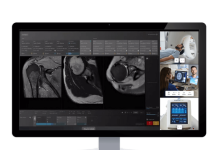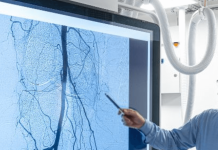French artificial intelligence (AI)-based medical imaging company Avicenna.ai has secured CE marks for a pair of radiologic screening tools to detect fractures from CT scans.
CINA-VCF Quantix is an AI algorithm is used to detect unsuspected vertebral compression fractures (VCFs) in patients undergoing CT scans for unrelated conditions, while CINA-CSpine is designed for the detection and triage of cervical spine fractures.
Related: RadNet acquires See-Mode to bolster AI ultrasound screening for thyroid cancer
Both tools gained 510(k) clearance from the US Food and Drug Administration (FDA) in 2024, while the tools’ receipt of CE mark follows Avicenna.ai’s clearance on five other AI tools in 2024 under the EU’s Medical Device Regulation (EU MDR).
For use in patients aged 50 and above who are undergoing patients undergoing CT scans of the chest or abdomen for other conditions, CINA-VCF Quantix automatically labels vertebrae and calculates vertebral height loss ratios in the thoracic and lumbar spine. In cases where a vertebral height loss ratio exceeds 20%–25%, a figure indicative of a moderate- to severe VCF, the algorithm generates prompts notifying radiologists to report their early findings in support of proactive patient care, Avicenna stated.
Avicenna.ai co-founder and CEO, Cyril Di Grandi commented: “Osteoporotic vertebral fractures can have a profound impact on patients’ quality of life.
“By encouraging the reporting of VCF presence and severity, CINA-VCF Quantix has the potential to make a real difference in long-term patient outcomes.”
CINA-CSpine is designed to automatically flag suspected acute cervical spine fractures through radiologists’ existing systems.
Di Grandi continued: “The launch of CINA-CSpine in the European market marks a significant step forward in trauma care. By reducing the time between scan and diagnosis, we’re helping radiologists catch cervical spine fractures faster and more reliably.”




